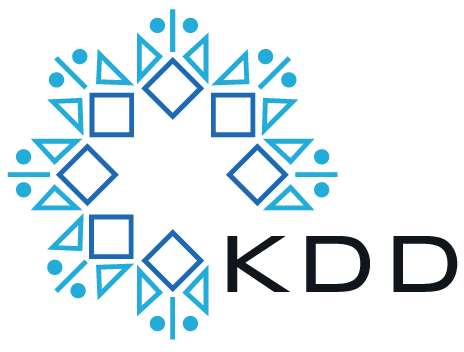SIGKDD(KDD) 1995 论文列表
Proceedings of the First International Conference on Knowledge Discovery and Data Mining (KDD-95), Montreal, Canada, August 20-21, 1995.
|
Toward a Multi-Strategy and Cooperative Discovery System.
Resource and Knowledge Discovery in Global Information Systems: A Preliminary Design and Experiment.
Fuzzy Interpretation of Induction Results.
Automated Discovery of Functional Components of Proteins from Amino-Acid Sequences Based on Rough Sets and Change of Representation.
Automated Selection of Rule Induction Methods Based on Recursive Iteration of Resampling Methods and Multiple Statistical Testing.
Accelerated Quantification of Bayesian Networks with Incomplete Data.
Fast Spatio-Temporal Data Mining of Large Geophysical Datasets.
Learning Bayesian Networks with Discrete Variables from Data.
Discovery of Concurrent Data Models from Experimental Tables: A Rough Set Approach.
Using Recon for Data Cleaning.
On Subjective Measures of Interestingness in Knowledge Discovery.
Data Surveying: Foundations of an Inductive Query Language.
Using Rough Sets as Tools for Knowledge Discovery.
Feature Extraction for Massive Data Mining.
Extracting Support Data for a Given Task.
Discovering Enrollment Knowledge in University Databases.
Knowledge Discovery from Multiple Databases.
Compression-Based Evaluation of Partial Determinations.
An Iterative Improvement Approach for the Discretization of Numeric Attributes in Bayesian Classifiers.
Decision Tree Induction: How Effective is the Greedy Heuristic?
MDL-Based Decision Tree Pruning.
Discovering Frequent Episodes in Sequences.
Knowledge-Based Scientific Discovery in Geological Databases.
Exploiting Visualization in Knowledge Discovery.
Feature Subset Selection Using the Wrapper Method: Overfitting and Dynamic Search Space Topology.
Anonymization Techniques for Knowledge Discovery in Databases.
Conceptual Clustering in Structured Databases: A Practical Approach.
Robust Decision Trees: Removing Outliers from Databases.
Efficient Algorithms for Attribute-Oriented Induction.
Rough Sets Similarity-Based Learning from Databases.
Estimating the Robustness of Discovered Knowledge.
A Perspective on Databases and Data Mining.
Discriminant Adaptive Nearest Neighbor Classification.
Restructuring Databases for Knowledge Discovery by Consolidation and Link Formation.
Available Technology for Discovering Causal Models, Building Bayes Nets, and Selecting Predictors: The TETRAD II Program.
Structured and Unstructured Induction with EDAGs.
Optimization and Simplification of Hierarchical Clusterings.
Knowledge Discovery in Textual Databases (KDT).
Data Mining for Loan Evaluation at ABN AMRO: A Case Study.
Knowledge Discovery in Telecommunication Services Data Using Bayesian Network Models.
A Database Interface for Clustering in Large Spatial Databases.
A Statistical Perspective On Knowledge Discovery In Databases.
Knowledge Discovery in a Water Quality Database.
Analyzing the Benefits of Domain Knowledge in Substructure Discovery.
Exploiting Upper Approximation in the Rough Set Methodology.
Applying a Data Miner To Heterogeneous Schema Integration.
Limits on Learning Machine Accuracy Imposed by Data Quality.
Capacity and Complexity Control in Predicting the Spread Between Borrowing and Lending Interest Rates.
Designing Neural Networks from Statistical Models: A New Approach to Data Exploration.
Learning Arbiter and Combiner Trees from Partitioned Data for Scaling Machine Learning.
Intelligent Instruments: Discovering How to Turn Spectral Data into Information.
Discovery and Maintenance of Functional Dependencies by Independencies.
Learning First Order Logic Rules with a Genetic Algorithm.
STAR: A General Architecture for the Support of Distortion Oriented Displays.
An Assessment of PrIL.
Active Data Mining.


